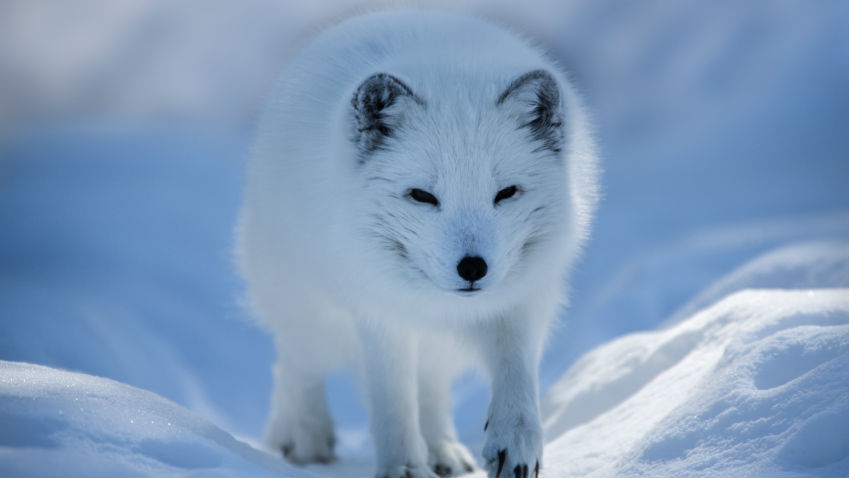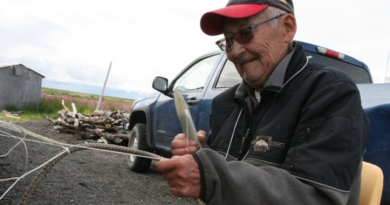Climate change threatens Arctic fox’s future in Nordic nations

Despite being legally protected from hunting and persecution for several decades, the adult population of the Arctic fox in the Nordics has dropped to around 250 individuals, making the animal highly endangered.
In Finland, there have been only 5 to 10 sightings of the native Arctic tundra species each year of late, and wildlife management groups say the beautiful white animal has not nested in Finland for over 20 years. A WWF report from 1996 contained a nesting observation, and in 2016, an attempt to nest was also recorded.
This means that the Arctic fox species (Vulpes lagopus) – also known as the white fox, polar fox, or snow fox – is in danger of disappearing from the Nordic countries altogether.
Before the animal was protected in 1940, it was hunted almost to extinction for its thick and white-as-snow fur. Now it is threatened once again by climate change.
“If the climate keeps warming up at the rate it is now, there will be no Arctic fox left at the end of the century, except perhaps on Arctic islands,” says Tuomo Ollila, chief inspector for Finland’s state-sponsored nature steward, Metsähallitus.
Threatened by the larger red fox
The Arctic fox is losing ground to the larger red fox on the Nordic mainland. This too has been attributed to climate change, as the loss of snow means that the white fox is easier for predators to see. Red foxes have been known to kill Arctic foxes and their kits.
To cut down on the number of red fox in former Arctic fox territory, Finland funds a program that pays around 20 hunters to cull red foxes from these areas each year.
Other natural predators of the Arctic fox include golden eagles, wolverines, wolves, and bears. The animals tend to live only 3 to 4 years in the wild.
A three-year “Arctic Fox Together” campaign to jointly preserve and protect the endangered animal was launched this spring as a cooperative effort between Norway, Sweden and Finland.
“It is very wise to increase this kind of cooperation because it is no use protecting species like this on a national level,” says Ollila, who leads Finland’s efforts in the campaign.
Food to keep kits alive
In addition to the red fox hunting program, the campaign focuses on providing supplementary food for the endangered species. A steady supply of food set up in the tundra can increase the kits’ chances of survival, and promote population growth. The Arctic fox preys on many small creatures such as lemmings, voles and waterfowl, and is also known to eat berries, seaweed, and insects.
Metsähallitus’ Tuomo Ollila has been monitoring and protecting the Arctic fox for the last eight years. He is one of the few people in Finland who has actually seen the animal in the wild in the 21st century. He says he wants to believe that the Arctic fox will persevere.
“I am optimistic about the future. We will never have thousands of Arctic foxes in Finland, but we do expect some nesting here,” he says.
Related stories from around the North:
Canada: This caribou herd population has dropped 99 % since 2001, CBC News
Finland: Finland’s endangered Saimaa seal population climbing back, Yle News
Greenland: Binding agreement on Arctic fisheries moratorium officially signed by EU and nine countries, Radio Canada International
Norway: Barents Sea ecosystem undergoing dramatic change, study shows, The Independent Barents Observer
Russia: Russia adds small Arctic island to large national park, The Independent Barents Observer
Sweden: Poachers suspected behind dwindling wolf numbers in Sweden, Radio Sweden
United States: Trump administration to drop new “critical habitat” for endangered species designation, Alaska Public Media



